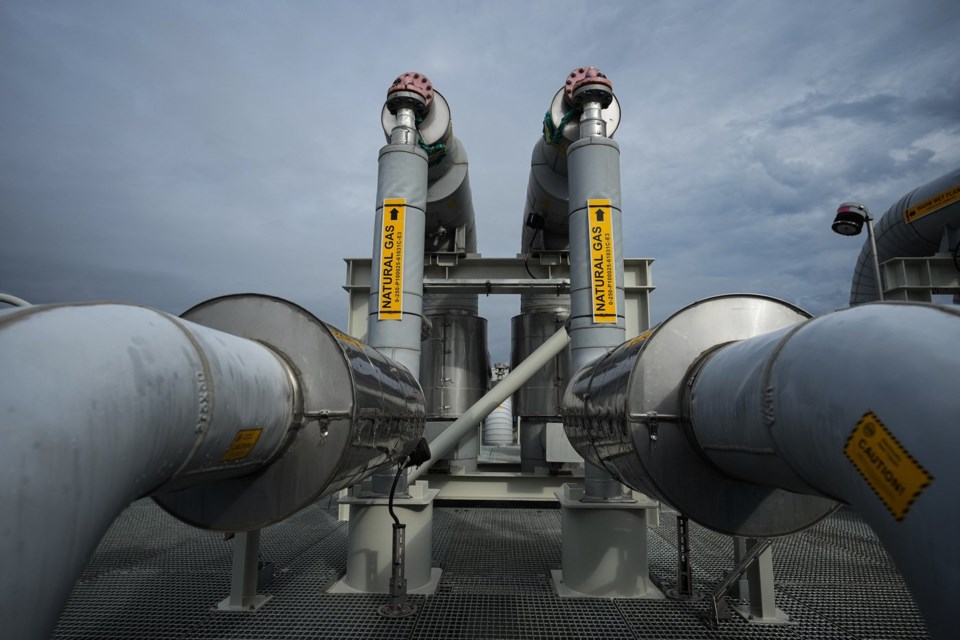MONTREAL — Reviving a liquefied natural gas export project in Quebec's Saguenay region would be costly and likely unprofitable, a shareholder advocacy group says, as economic threats from the U.S. rekindle interest across the country in new pipelines.
Demand for LNG in Europe dropped by 18 per cent between 2022 and 2024, and Canadian exports would have a hard time competing in Asian markets, says advocacy group Investors for Paris Compliance.
"Investing in infrastructure that will be very expensive and likely won't be profitable will weaken our economy rather than strengthen it," Renaud Gignac, an economist and senior adviser for the group, said in an interview.
In a report published Thursday, Gignac notes LNG production is expected to grow by 40 per cent from 2024 to 2028, driven by projects in the United States and Qatar, and demand is not expected to keep pace.
"This is significant," Gignac said .... What this means is that the profitability of any new project is compromised because we risk seeing downward pressure on prices."
A project to transport natural gas from Western Canada to an export terminal in Quebec's Saguenay region was cancelled in 2021 due to environmental risks and public opposition. But Quebec Premier François Legault has recently opened the door to pipeline development in the province, saying Quebecers recognize the importance of reducing the country's dependence on energy exports to the U.S.
The advocacy group says inflation could balloon the project’s price tag to more than $33 billion, and public money would likely be required.
"These are considerable investments that mobilize public capital and labour as well," said Gignac, a climate policy analyst. "When you direct resources to this type of project, you make choices, and we believe there are options that could be more profitable in the long term, for both public and private investors."
U.S. President Donald Trump's threats to impose punishing tariffs on Canadian exports have ignited public debate on the utility of a trans-Canadian pipeline to ship oil or gas overseas. Prime Minister Mark Carney and Quebec's Legault are among those who've chimed in on re-evaluating pipeline projects.
"As initial panic subsides following the Trump administration’s tariff threats, a calmer analysis of the East Coast LNG projects show that they carry significant risks for potential investors and taxpayers," says the report.
The analysis did not address the potential revival of an west-east oil pipeline project like Energy East, abandoned by TransCanada in 2017, which would have crossed through Quebec to New Brunswick. But Gignac says the conclusions of such an analysis would be similar.
"There is an imminent forecast of peak demand," he said.
Gignac considers reviving pipeline projects to be "a false solution" to making the Canadian economy more resilient.
The group said there are better ways to stimulate the Canadian economy, including integrating provincial electricity grids and mining critical minerals, which are key for the electrification of transportation and will be needed elsewhere in energy transition.
His group's support for mining, however, puts the association at odds with some environmentalists. "Mining is certainly not without environmental impact," Gignac said. "So we will also have to look at the most responsible ways to extract these minerals and bring them to market."
The report also identifies the federal government's plans to build a high-speed train linking Quebec City, Montreal, and Toronto as a promising project.
This report by The Canadian Press was first published May 22, 2025.
Stéphane Rolland, The Canadian Press



